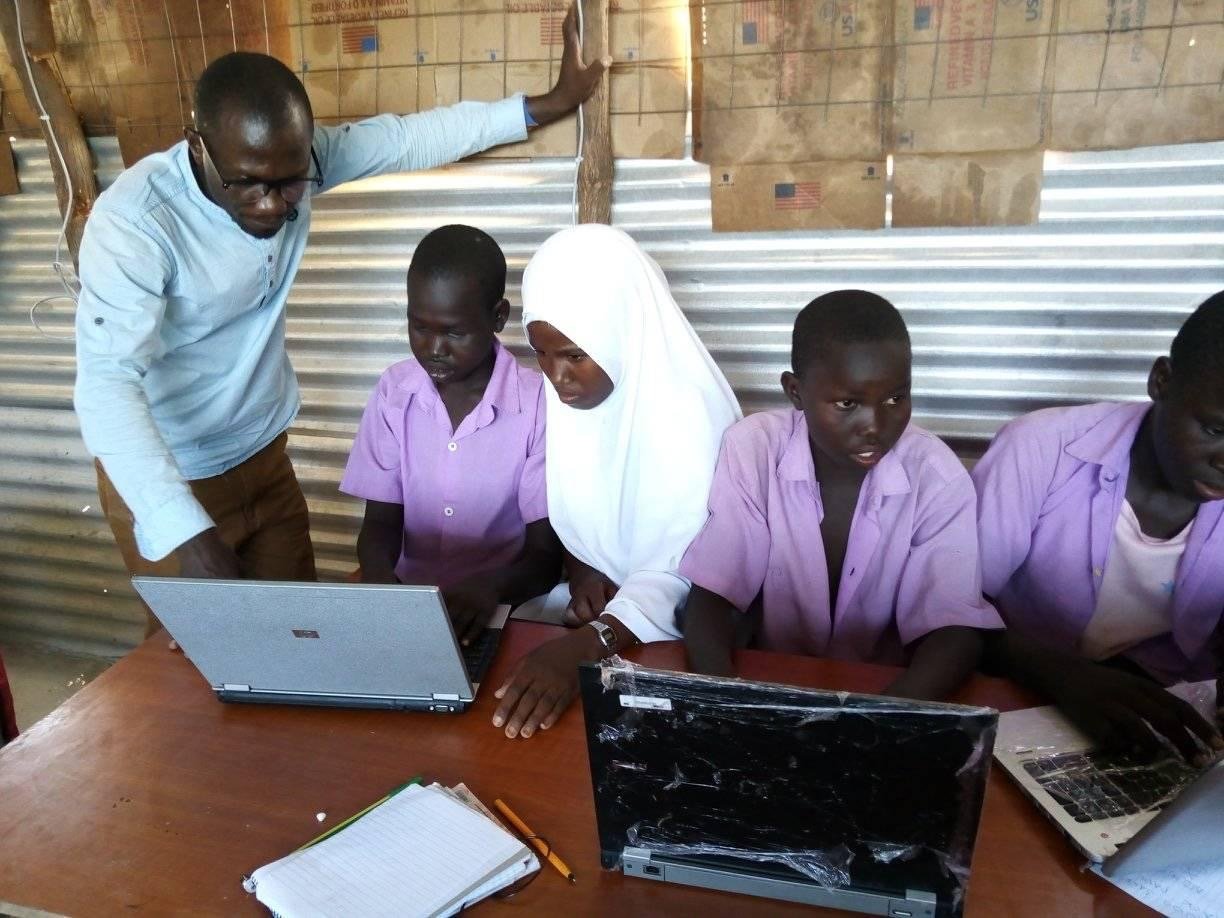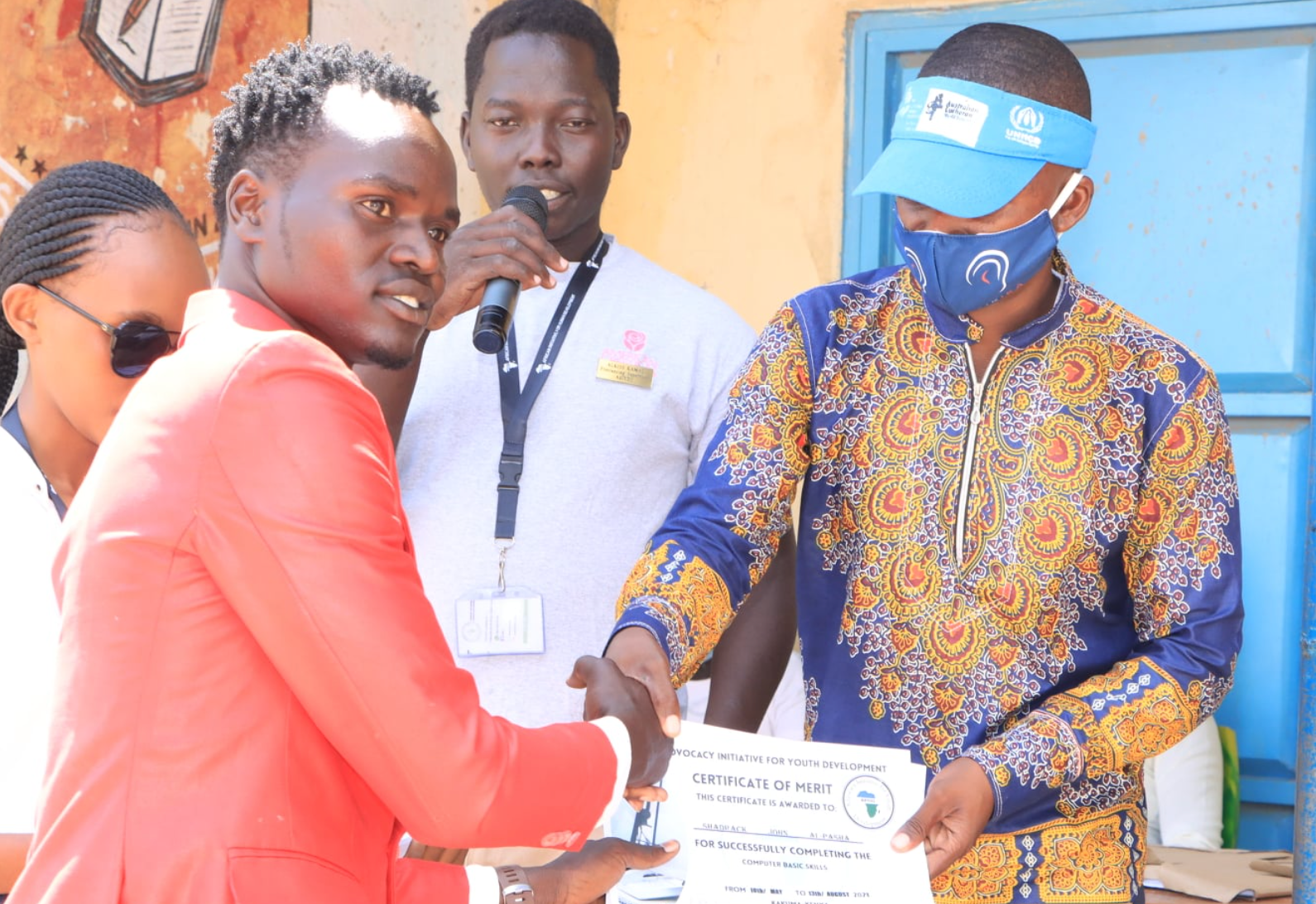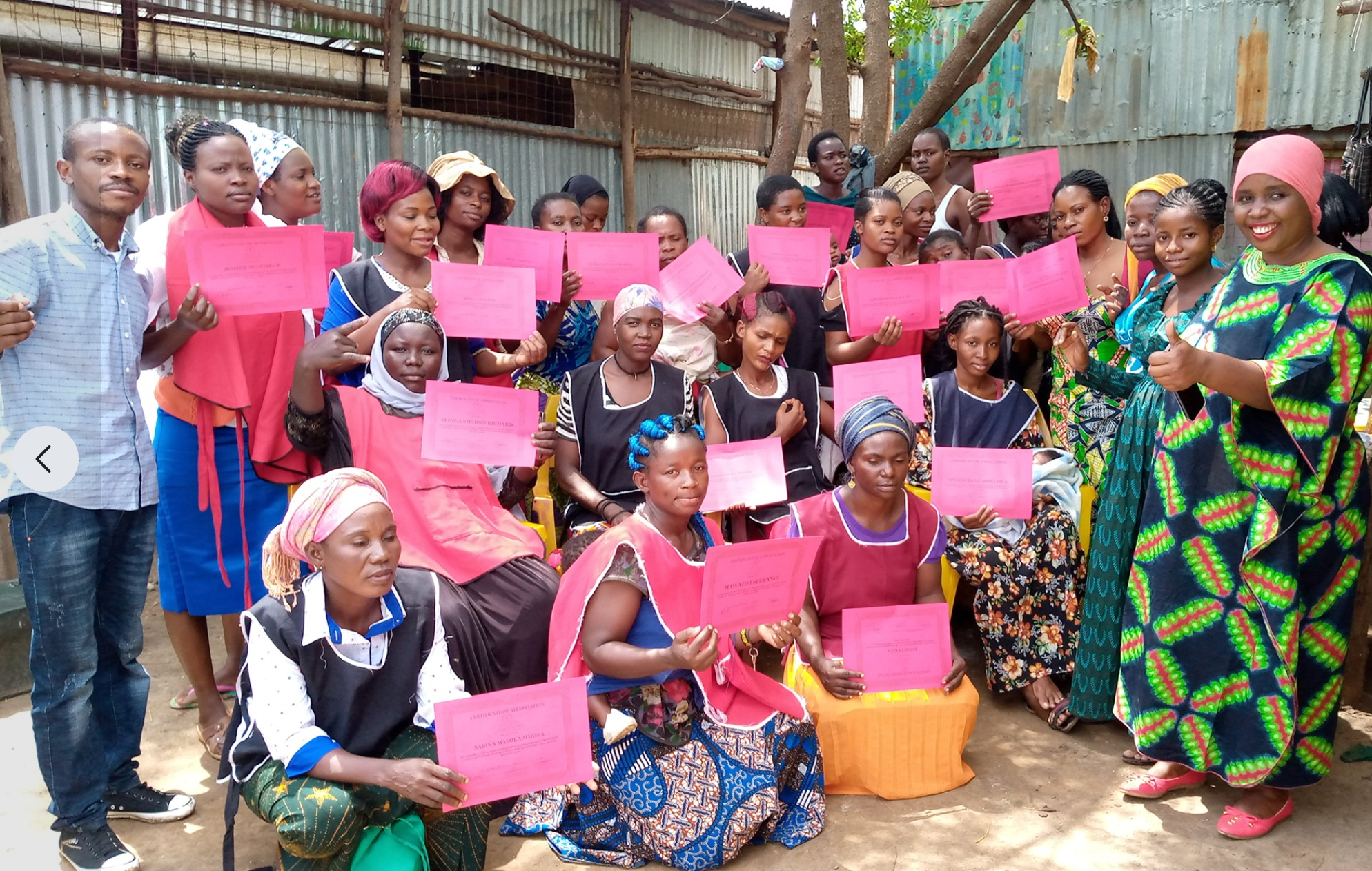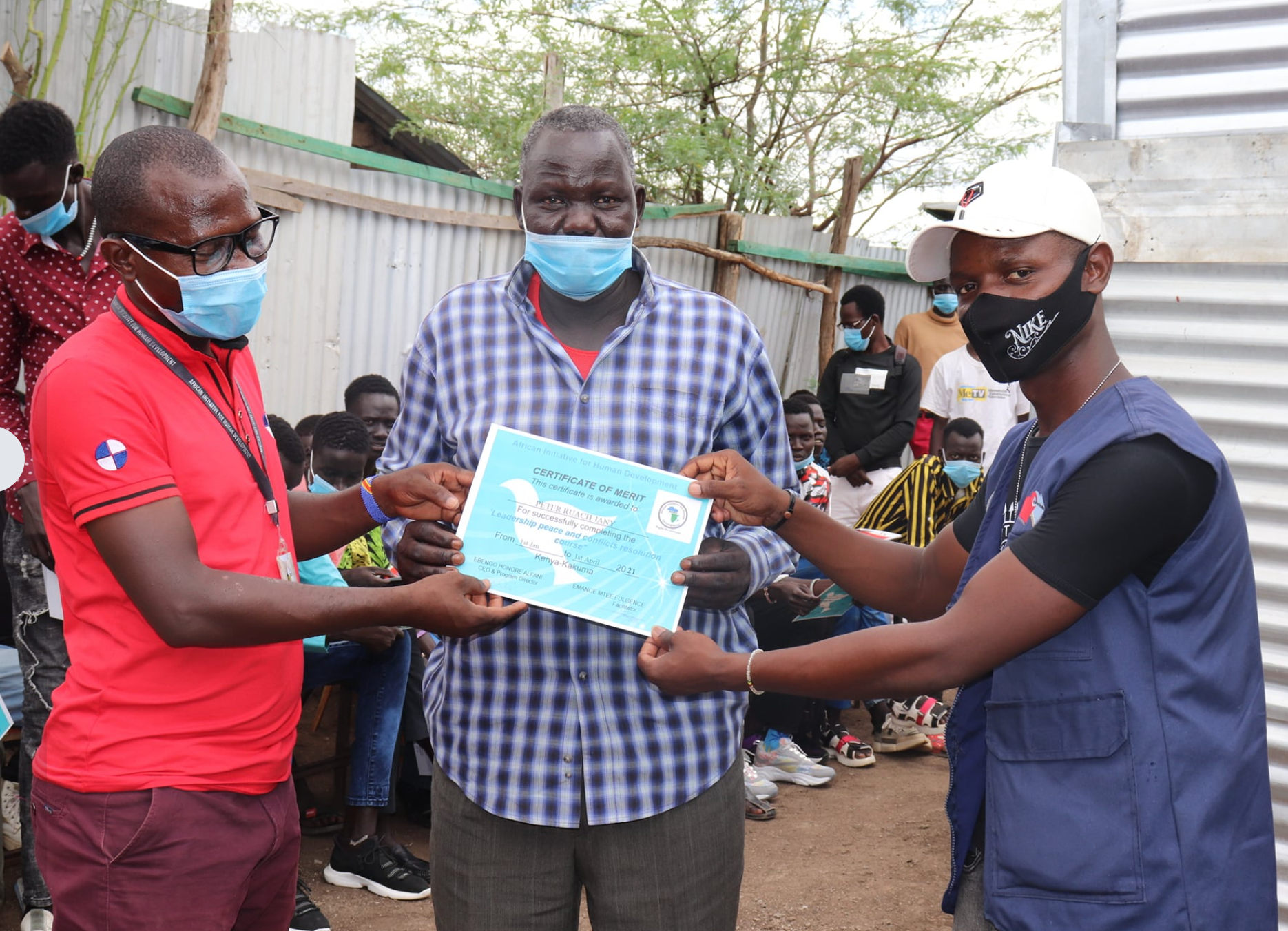
My work in Kakuma
Since 2019, I have supported and mentored three refugee leaders in Kakuma refugee camp, Kenya. Each is the founder and CEO of a unique community-based organization (CBO) that serves the youth in the camp. Ebengo Honore Alfansi (Advocacy Initiative for Human Development), Kitala Mupenge Fabrice (There is Hope Africa), and Matabishi Titho John (Kakuma Vocational Center) run grassroots programs that cater to the needs of youth and women ages 10-25. These leaders are models of innovation and design thinking. Their organizations offer a variety of training that reimagines education. Reimagining education in Kakuma is vital if children are going to have any hope for their futures.
-
My work with refugees began in 2018 when I attended a conference in Lebanon hosted by Jusoor Syria, an organization that supports the education of Syrian refugee children in the country. After learning more about Jusoor’s work, I was determined to use my years of experience in education to support refugees around the world. My next experience was a pilot course for refugee teachers that was offered by the Refugee Educator Academy, a Carey Institute initiative based in Rensselaer, New York. The course attracted teachers from all over the world including two from the Kakuma refugee camp in Kenya.
In addition, I volunteered to teach English to young adults from marginalized populations around the world including Afghanistan, Nepal, Sri Lanka, and Africa through the JRS organization, as well as participated as a mentor as part of the GEL Buddy initiative. My most recent mentoring experience was with Na’amal (“we work” in Arabic), where I mentored a young man from Turkey who recently resettled in the United States with his family. We met biweekly for several months and discussed his remote work as well as ways he could use the skills he learned during the MITReact certificate program to find a job in his field of expertise.
-
The situation may seem hopeless; however, several refugee leaders in Kakuma are finding different ways to teach skills to the youth in the camp by opening community-based organizations (CBOs) that 1) help youth qualify for freelance or remote jobs with IT skills training such as digital literacy, coding; 2) offer vocational skills like hairdressing for young women and mothers; 3) create maker spaces to teach problem-solving and design thinking. With global support, these entrepreneurs are reimagining education.
-
According to the latest statistics from the UNHCR, there are more than 82 million displaced persons including 26 million refugees. They estimate that almost half of the refugees are under the age of 18. Many have fled their homes due to war or natural disasters. The chance of resettlement is extremely low, so most refugees in camps like Kakuma, Kenya will spend their lives there unless they are resettled elsewhere or able to return home. In addition, only a small percentage of secondary students are enrolled in school, and female students constitute only 22% of the overall enrollment.
Education in Kakuma is problematic. 94% of eligible secondary school-aged children are out of school and 87% of those enrolled are over-aged. Female students only constitute 22% of the overall enrolment and 57% of the teachers are untrained, and many are refugees. Compared to 21 primary schools, only 5 secondary schools are available in the camp. So reimagining education in Kakuma camp is vital if children are going to have any type of future. Lack of education leads to a cycle of poverty and dependency on handouts. Lack of hope has led to domestic violence and violence among rival groups who live close together.






Kakuma Refugee Leaders
Learn how you can make a difference.
Over on my blog, I share a story based in Kakuma, Kenya that helped procure donations to purchase laptops, increase internet capacity, and hire facilitators to teach the basics of using a computer and Microsoft applications like Word.
Learn more about refugee leaders in Kakuma, Kenya
Ebengo Honoré Alfani is the founder of Advocacy Initiative for Human Development( AdIYD2). Since fleeing his home in DRC and arriving in Kakuma refugee camp in 2012, he has worked for several NGOs and decided to establish AdIYD2 in 2019. The community-based organization provides a variety of training such as Freelance, Digital Skills, and Peace and Conflict Resolution to youths ages 18-25.
Kitala Mupenge Fabrice was born in 1991 in a village called Kakulu, Democratic Republic of Congo, a war-torn area. arriving in Kakuma refugee camp in 2012. In 2017, he decided to establish There is Hope Africa (THA), a community-based organization to empower his fellow refugees through technology and vocational training skills.
Matabishi Narukako John (Mata), is a refugee in Kakuma camp, originally from the Democratic Republic of Congo. Unable to register for university, Mata completed various international NGO training programs. He is the Founder and CEO of the Kakuma Vocational Center (KVC) established in 2018. KVC is the first maker space for youth in Kakuma.
Make a donation.
One person can make a difference. If you are interested in supporting my work in Kakuma, I encourage you to donate any amount of your choosing to this cause. All donations will support young adults and students with their education needs including technological resources, internet capacity, and teachers.

